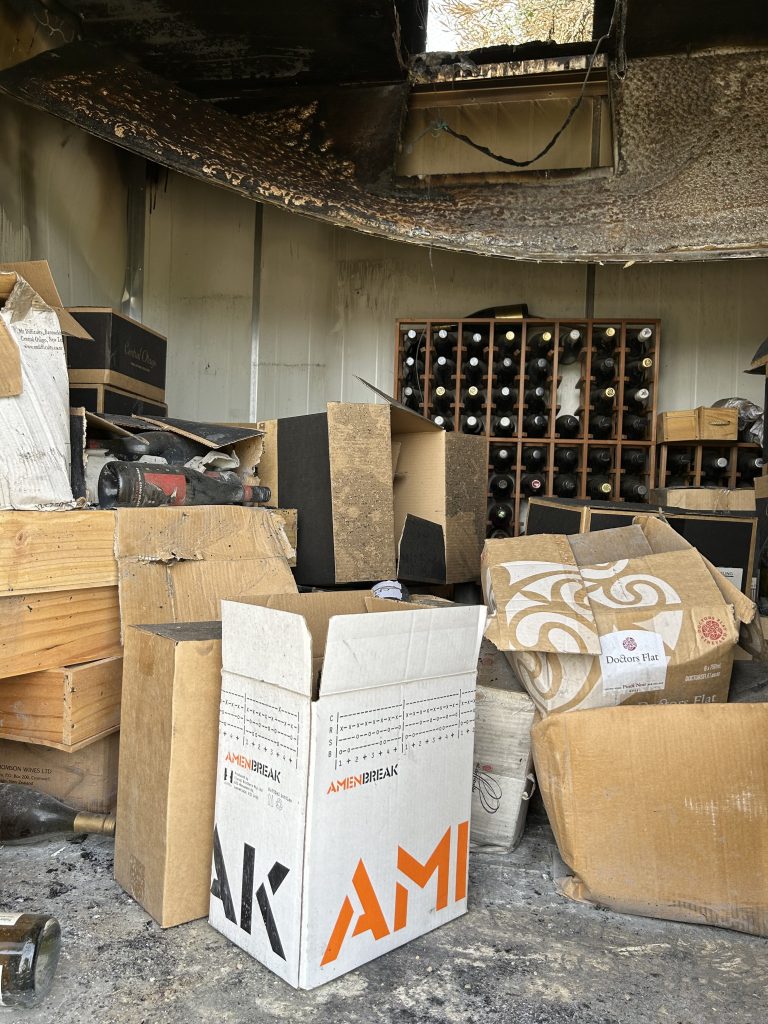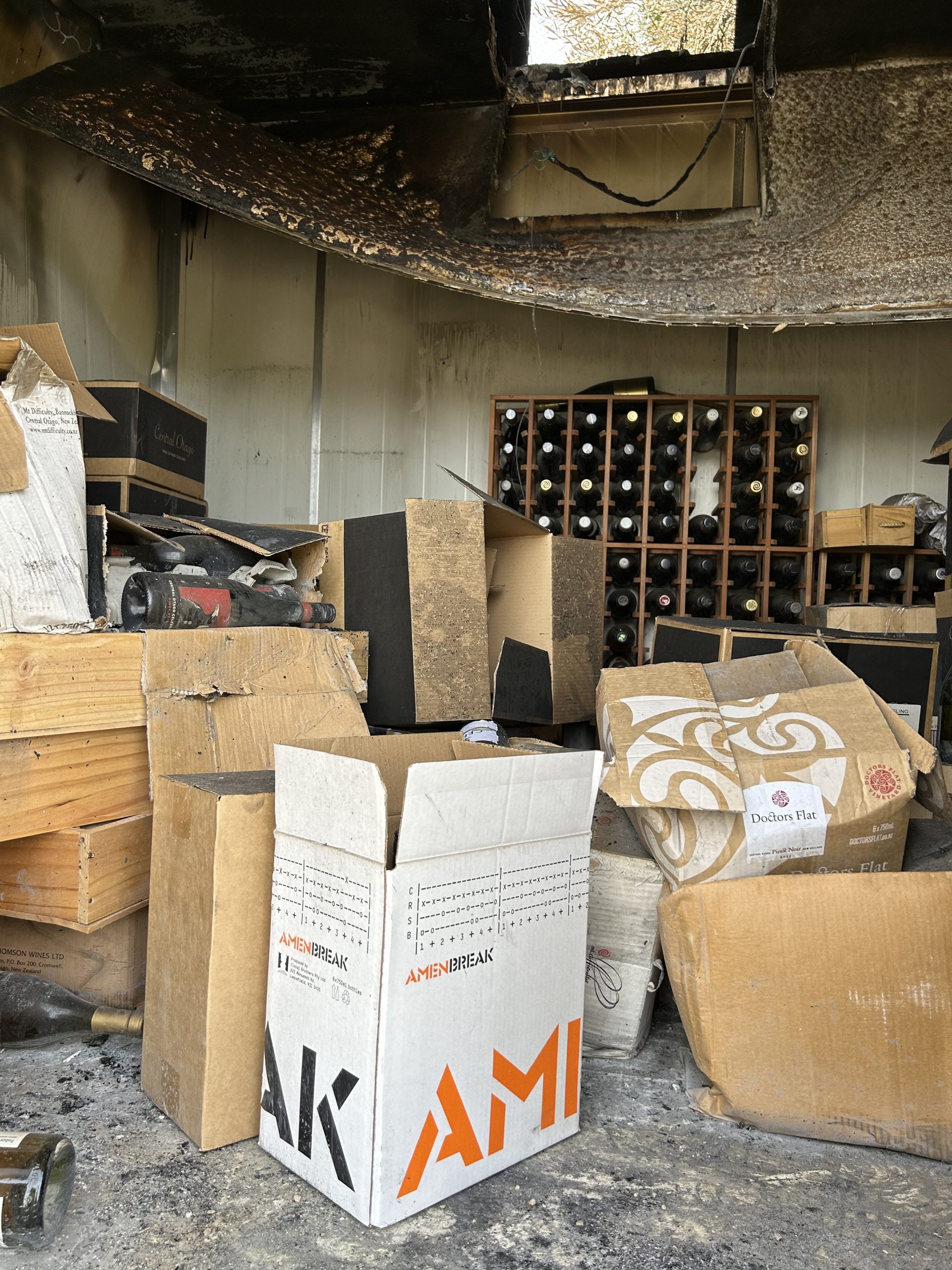After a fire destroyed his precious collection of wine, a Bannockburn vintner has a strong message for anyone living on rural properties.
‘‘Have plenty of appropriate fire extinguishers.’’
James Dicey had been welding at his Bannockburn property on the Saturday of Labour Weekend.
He finished up and had made sure everything was safe.
He walked to his nearby home and as he sat in the lounge to have a drink, he thought he saw dust behind the shed, but then saw flames.
He ran back to the shed and phoned for the fire brigade.
Two things prevented the fire from being much worse — plenty of fire extinguishers on hand and a 2000-litre plastic water tank, Mr Dicey said.
The tank collapsed, dumping its contents on two rubbish containers.
He was able to contain the roof fire using the extinguishers until the fire engines arrived.
It would have been significantly worse if the entire shed had caught fire as there were agrichemicals stored in there.
Unfortunately, the building housing his wine library — bottles he had been collecting since 2005 and some of his own wine — was engulfed.
It was lined with polystyrene and, while it was wonderfully insulating, once it caught fire there was no putting it out.
The collection was worth between $15,000 and $20,000, but much of it could not be replaced at any cost, he said.
‘‘It was pretty heartbreaking.’’

On Tuesday as the damaged plastic tank was taken away, he had been tasting the wine.
It was undrinkable as it had effectively ‘‘cooked’’ in the bottles and would be going to the rubbish tip.
The Cromwell Volunteer Fire Brigade had done a fantastic job and arrived within minutes, Mr Dicey said.
However, he had always thought his property’s 30,000-litre water supply would be a backup in case of a house fire, but he discovered it was actually too far away to be useful there.
He planned to install a fire standpipe connected to the water supply nearer the house.
He had also spent $1000 on fire extinguishers and fire blankets.
It took the Cromwell brigade three minutes to get the first engine on the road and seven to reach his property.
The brigade had 15 minutes to prevent a house going up in flames, Mr Dicey said.
In rural areas, containment rather than saving a building was the best firefighters could hope to do.
It was important that homeowners had enough appropriate extinguishers and water on hand to contain their property until help came, to have the best chance of saving the property, he said.





